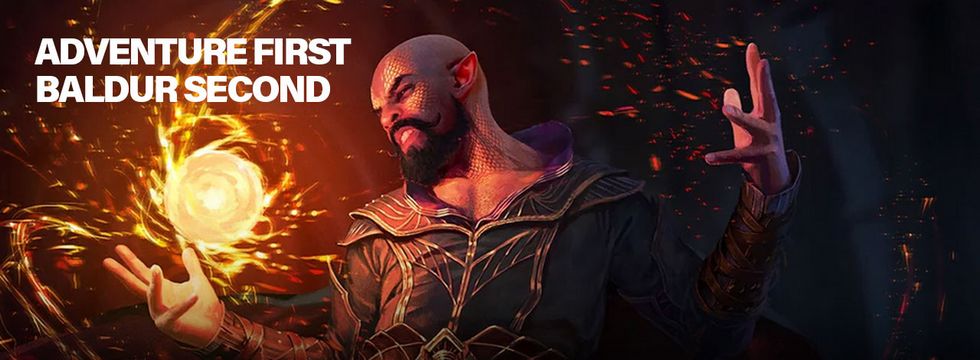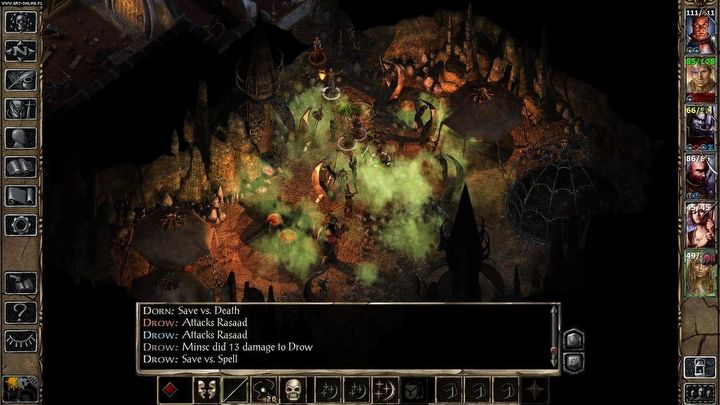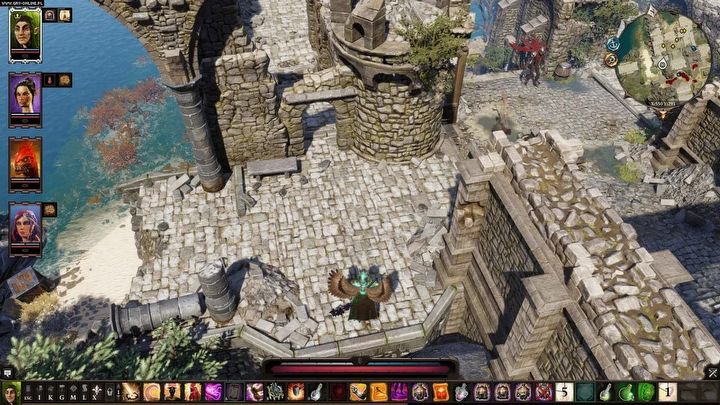Baldur's Gate 3 Can Be Adventure of Lifetime Even if it's Not Really Baldur
Does BG3 even have to be "a Baldur"? Don't cast stones! This provocative question dawned on me as I recently tried the two original installments. From part three, I wish but one thing (it could be so much).

Phew, we did it! I'm ashamed to say it, but although I consider myself as an RPG freak, I didn't play two Baldur's Gate installments until this year. I waited for the third one with blushes on my face, because Larian and the Divinity games they've created redefined my perception of isometric RPGs. Mainly due to the feeling of experiencing a total adventure and a highly interactive world presented (moving barrels with one click of the mouse has never been more satisfying). So I knew that I just had to play the first and second parts of Baldurs Gate, before the launch of the third one. Because that's how it should be and that's my whim. So July has arrived, and I managed to do it almost at the very end. I know a lot about these games, so I know what I expect from Baldur’s Gate 3. And you know what? It turns out, I don't really want this game to necessarily be Baldur’s Gate 3.
I mean, it goes without saying that a game titled Baldur's Gate 3 should be the third part of the Baldru's Gate series Except that the next installment of a series doesn't have to be enslaved by it at all. The old ruler can do without a few courtesy bows and fief tributes. It is possible to appease him with respectful, worthy continuation of his legacy, but it would be a mistake to adopt his conservative views and questionable ways of running the kingdom. The king is dead, long live the king. Just let its crown shine brightly.
Getting out of the snare of this monarchist metaphor, let me be clear: I would like Baldur's Gate 3 to be "Baldur's" first and foremost in a spirit - with the vibe of an unpredictable, immersive, genre-diverse and structured adventure. Dusty mechanics of happiness are not needed by anyone, I much prefer the gameplay prepared by Larian for the latest Divinity. Will we find all of this in BG3? It's hard to determine based on the first act, because after going through both previous parts, I know one thing for sure - these games primarily operate as a whole.

Mid-way through BG 2, players explored some more linear locations, such as the UnderdarkBaldur's Gate II: Enhanced Edition, Atari, 2013
Before venturing forth, let's talk about the structure.
When we play Elden Ring, we have free hand and an open world to explore. The same goes for Skyrim, Zelda, even Diablo 4. So we are talking not only about full-fledged RPGs, but also about sandboxes, hack'n'slash games and other inventions. Today, we are most often thrown into a big, open world where we discover its secrets on our own. On paper? Great thing, a contribution to emergent experiences, giving (apparent) control to the player. Baldur’s Gate, however, never offered such total freedom. Yes, BG allowed us to wander through various forests having a few surprises to offer in the form of a secret location or treasure between one tree and another. BG2, on the other hand, threw us into a vortex of exploration of a bustling, multi-district city almost at the very start. But...
Baldur's Gate is above all a journey, a constant striving for some goal - even if not the main one, then one of many side ones. This path, in turn, was strewn not with roses, but with the thorns left after them, occasional plot twists, and completely different chapters from each other. This is best seen in the example of the second installment of the series. After a longish introduction, two chapters are actually spent there among a torrent of events concerning Athkatla, which is full of mystery and intrigue. At our disposal is the entire capital of Amn, but also its hidden, underground structures, the interiors of buildings or the vast areas outside the city limits, rich with solid optional quests. You can spend a good few dozen hours here on everything but the main thread. Baldur's Gate 2 can stun and overwhelm in its first half.
However, the developers weren't afraid to completely disrupt the structure of the gameplay from the fourth chapter, changing not only the scenery of the game (the metropolitan hustle and bustle has been replaced by the moans of a mental hospital for mages and the unsettling silence of the hellish, tunnel-like Underdark). Openness has largely been replaced by... linearity. We still had the opportunity to move around relatively large areas such as a dark drow village or the "Baldur’s Atlantis," but this time, what was secondary didn't occupy so much attention. The plot sped up, the stakes increased, and you could feel the breath of danger on your back, so your actions were more subordinated to the main plot.
The plot twists prepared by the scriptwriters for this substantial fragment, such as being locked in Irenicus's cell (for the second time) or kidnapped by the Mind Flayers as gladiatorial cannon fodder, had an even stronger impact. Detaching from the main storyline of the game for a few hours, just to try to escape from somewhere or simply to survive, not only intensified the variety of experiences, but also allowed to feel that we are dealing with an... adventure game. Do you remember those single sequences from point'n'clicks like "Monkey Island", where suddenly, deprived of collected items and freedom of movement, we have to escape from jail or from the digestive system of a full-fed snake? Such associations came to my mind while interacting with the Baldur's Gate - truly 'RPG', but also experimenting with the genre at the same time.

For Joy is one of the most original chapters I've ever experienced in a game.Divinity: Original Sin II, Larian Studios, 2017
Surprise me - I know you can.
This unique diversity and variety of the campaign is thus the foundation of a satisfying experience that I would wish for in Baldur's Gate 3. I want to be surprised, put in challenging circumstances, sometimes offering a multitude of solutions, other times even zero-one solutions - let the game master have no mercy on adventurous travelers. Let it force us to make constant decisions, reactions, and improvisations. Of course, it's much more difficult for Larian to organize something like this for old RPGers, especially those associating tricks from the older Baldur's Gate, but already in Original Sin 2 the developer showed that they can fool the players and meet their expectations.
Just remember Fort Joy, putting the players in the role of slaves chained by a magic collar. Providing them with an escape almost on the scale of that from Alcatraz. Intriguing them with a mysterious wand, hidden settlements, and rebellious motifs. The high pace, original ideas and ways to keep the player interested for a long time were certainly not absent in this game. This is a great forecast for Baldur’s Gate 3 as a multi-act adventure, in which each chapter offers not only further snippets of the plot, but also a redefined approach to gameplay itself - with the same range of mechanics, but slightly different field for their use.
That's why I don't identify with the complaints that Baldur's Gate 3 looks like the non-existing Divinity: Original Sin 2 and for that reason I won't play it On the other hand, I'm extremely excited to meet Minsc again (Jaheira a bit less so) and I'll take with a smile on my already enthusiastic face the next winks and references to the plot of the previous parts, yet all these references to nostalgia aren't a priority for me.
I'm expecting an adventure. An adventure with the verve and magic of Dungeons and Dragons, and at the same time without all the technical tribulations associated with D&D. A monumental journey, but one that doesn't stagnates and doesn't turn into a real stone after a few sleepless nights. I expect a lot, but I trust these Belgian scamps, because they never let me down, and for months they are increasingly proving that they know what "Baldur's Gate" is all about. Exactly: WITH WHAT. Because Baldur's Gate doesn't necessarily have to be the main ingredient in Baldur's Gate 3 for me to eat it until my stomach hurts.
